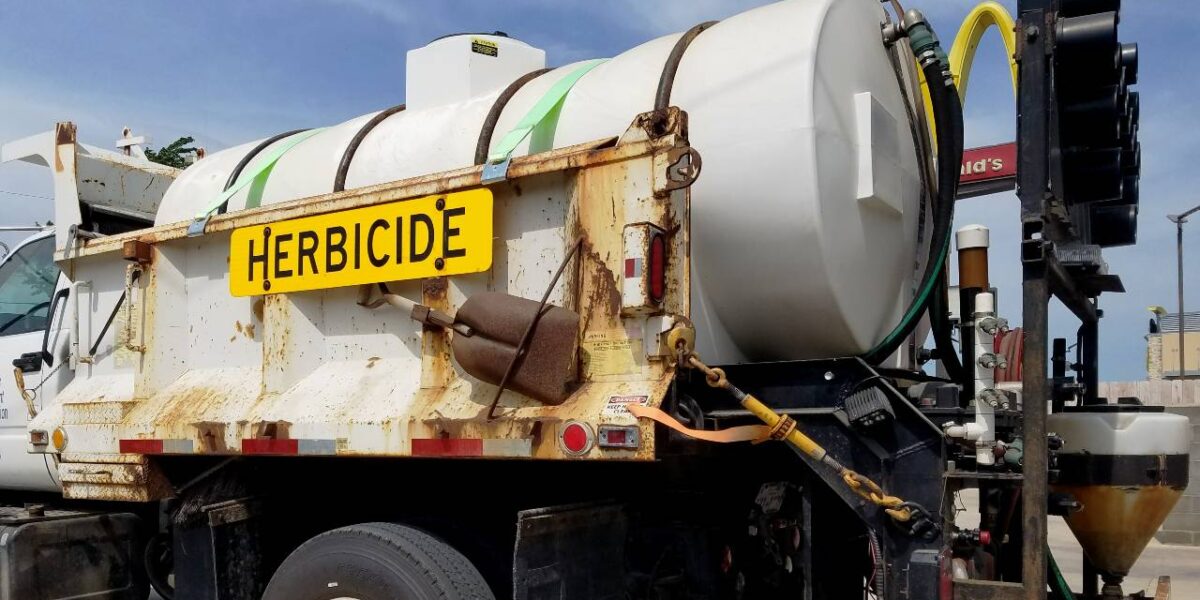A coalition of experts and advocates are calling on the federal government to ban the use of glyphosate in Canada.
Their efforts, led by prominent Canadian filmmaker Jennifer Baichwal, have received support from more than 18,000 people across the country.
Glyphosate (also known under the brand name RoundUp) is Canada’s most widely sold pesticide.
Known for its ability to kill crops, glyphosate is used to harvest, as well as get rid of unwanted trees and vegetation.
The exposure to glyphosate means Canadians of all ages consume harmful residues in food and water. Traces of glyphosate are most often found in corn and wheat-based products. Glyphosate is in many staple products like flour, lentils and oats, as well as cereal, crackers and pizza.
Humans are also exposed to glyphosate while outdoors for recreation, work, hunting and harvesting.
Data shows glyphosate use can harm species both on land and in water. Its contribution to the loss of biodiversity results in ecosystems being more vulnerable to pollution and the greater effects of the climate crisis.
Need for pesticide reduction strategy
In an interview with rabble.ca, Jackie Garrow, founder and principal impact producer with Ring Five Impact Docs, spoke about the urgent need to take action against glyphosate use.
“This isn’t really just a health issue,” Garrow said. “This is an environmental issue. This is a farming issue. This is a Ministry of Natural Resources issue.”
Garrow’s mission is less about getting the Canadian government to hold Monsanto accountable, and more about figuring out what the country’s pesticide reduction strategy is.
Part of the reason Garrow believes glyphosate has not been taking off the market in Canada already is due to bodies like the Pest Management Regulatory Agency being “captured by corporate influence.”
According to Garrow, the coalition’s efforts are working, as they received support from MPs from all five provincial parties who agreed with tabling the same petition Baichwal tabled with Liberal MP Jenica Atwin.
Another problem is determining whose jurisdiction it is to review glyphosate use in Canada. Garrow attributes that issue to a lack of cooperation and coordination from federal ministries.
“It’s kind of shocking to see actually as a citizen,” Garrow said. “And it’s shocking to see how much they expect citizens to sort of figure this stuff out on our own, like, no one’s protecting us.”
The costs of glyphosate
Jennifer Baichwal might be a filmmaker, but she knows all too well the dangers of glyphosate.
Baichwal followed the global political debate about glyphosate in a 2022 documentary, Into the Weeds: Dewayne Lee Johnson vs. Monsanto Company.
The film, available to stream free on CBC Gem, tells the story of a man who developed Non-Hodgkin’s Lymphoma after working with the glyphosate product Roundup for years.
Johnson argued Roundup caused his cancer, while Monsanto’s lawyers claimed glyphosate poses no harm to humans. The jury agreed and ordered Monsanto to pay Johnson $250 million.
Last week, Baichwal teamed up with New Brunswick Liberal MP Jenica Atwin to introduce their petition to the House of Commons.
Atwin made headlines in 2021 when she crossed the floor, leaving the federal Green Party to join the Trudeau Liberals.
“Canadians have the right to breathe clean air, drink safe water and harvest healthy foods from the land,” Atwin told reporters at a May 2 press conference on Parliament Hill.
Noting there is a “growing global consensus” that glyphosate is a threat to both biodiversity and human health, Atwin says she’s spent the past three years learning about the pesticide and the urgency with which governments need to respond.
“I believe that rather than allowing toxic chemicals to be sprayed in Canada until they are proven harmful, we should be exercising greater precautions and banning products until they can be deemed safe,” she said.
If Baichwal’s documentary is any indication, corporations like Monsanto will spare no expense to bring down any litigation against them.
“This affects all Canadians,” she said. “It’s an issue that Canadians can unite on, from farmers to foresters to people in cities.”
Glyphosate use approved in Canada until 2032
Glyphosate has been found to cause kidney and liver diseases. It’s also connected to cases of endocrine disruption and microbiome damage. Baichwal noted glyphosate was labeled a “probable human carcinogen” by the World Health Organization in 2015.
“I’m an ordinary Canadian citizen and I’m appalled, enraged and frightened,” Baichwal said, “that our government and our regulatory agencies aren’t as scared as I am.”
The petition to ban glyphosate use has received support from organizations like the Canadian Association of Physicians for the Environment, the David Suzuki Foundation and Friends of the Earth Canada.
Without action from political officials, glyphosate use will continue to be approved until at least 2032 when its approval will need to be renewed.
Baichwal told reporters she plans to file an official request to the auditor general, calling on four federal ministers to account for the continued use of glyphosate in Canada.
She pointed out that Canada will not be able to meet its international commitments on pesticide reduction, or its commitment to the U.N. Global Biodiversity Framework targets to reduce pesticides in half by 2030.
“Other countries have plans in place,” Baichwal said. “What are ours?”
Petition gets support from high-profile author
One of the first people to sign the petition was The Handmaid’s Tale author Margaret Atwood.
In a pre-recorded message delivered at the press conference, she noted that the health of Canadians is in danger due to pesticides like glyphosate.
Atwood is calling for a glyphosate ban that would not endanger the food supply and the livelihoods of farmers who produce it. She says governments can support farmers by inventing alternatives and providing incentives for organic farming.
“It is everywhere, including in our bodies and our children’s bodies,” Atwood said. “It is affecting your liver, your kidneys, your intestinal tract, your fertility, and your chances of getting cancer.”



